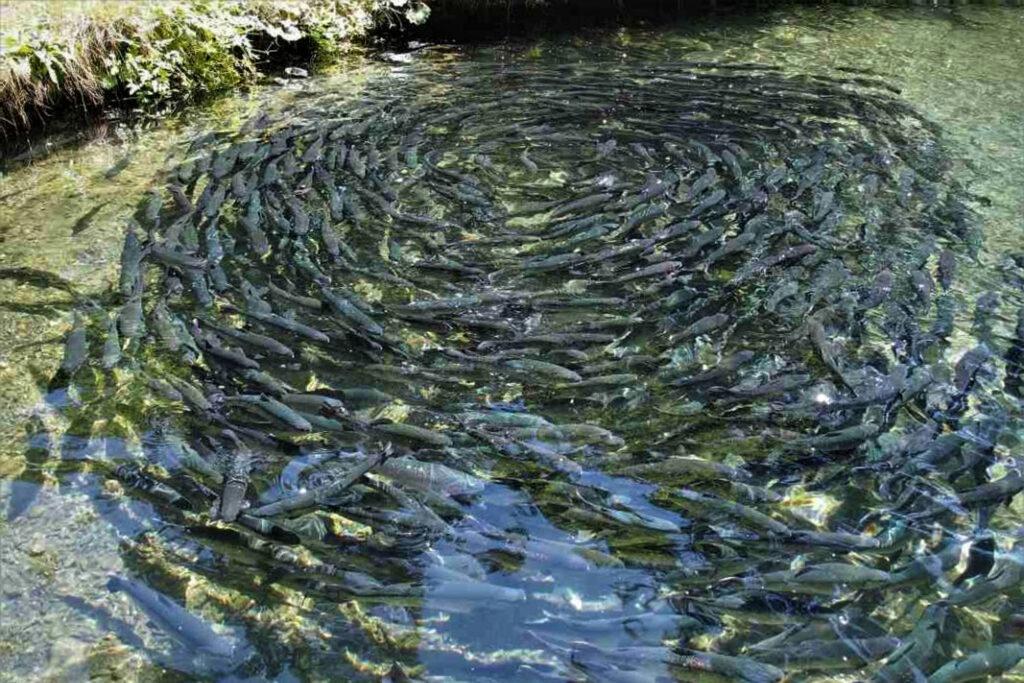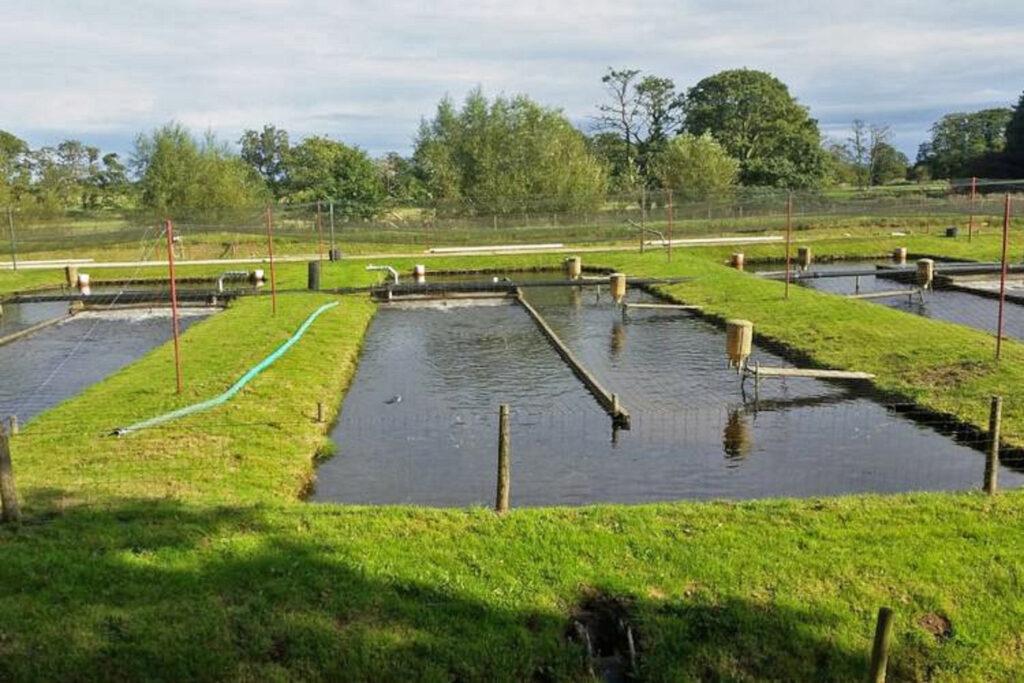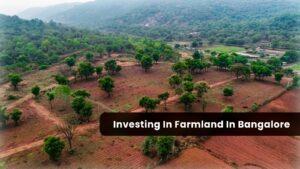Fish is one of the healthiest foods in the world because of its high protein content, vitamin D, and omega-3 fatty acids. It is also one of the nutrition-rich foods that heals many health conditions, such as lowering the risk of heart attacks, improving brain health, preventing depression, protecting vision, and lowering the risk of autoimmune illnesses.
Fish is one of the most commonly consumed foods due to the numerous nutritional and physiological benefits it delivers. According to research, the global fish intake per capita in 2018 was 20.5 kg. With the help of this research, it is also anticipated that worldwide fish consumption will increase by 18% by 2030 compared to 2018.
Not only globally, but also in India, fish is one of the most popular and consumed foods, as a result of which India imports fish from over 80 nations, including Singapore, the United Arab Emirates, Myanmar, China, France, and Malaysia.
In addition, India imported fish worth 15.82 USD million from Singapore, 8.559 USD million from the UAE, 2.69 USD million from France, and 1.65 USD million from Bangladesh in 2020.
While we’re on the subject of how fish are incredibly helpful to human health and how much money we spend on fish imports from other nations, has it occurred to you that you could make a fortune by going for fish farming?
Benefits Of Fish Farming

- There is a high demand for fish and fish products in India. Fish is one of the most popular foods on the menus of more than 60% of Indians.
- Market demand and pricing for fish and fish-related products are constantly high.
- The Indian climate is ideal for fish cultivation and fish farming.
- Low-cost labor that is readily available. You can also develop an integrated fish farming business by combining diverse animals, birds, crops, and vegetables. Integrated fish farming minimizes feeding expenses while increasing output.
- Fish farming in India is a very profitable and low-risk industry. Commercial fish farming has the potential to generate additional income and job possibilities.
The frequency of commercial fish farming in India is steadily increasing. Because fish and fish products are in high demand in India. And, in line with current population growth, the consumption rate and demand for fish are gradually increasing. In addition, by going for inland fish farming, you can stay up with the increasing economy while also making the most of fish demand.
What is Inland Fish Farming

Inland fish farming is a type of aquaculture in which fish are kept in enclosed environments for sale as food. Freshwater bodies such as lakes, ponds, rivers, and tanks are used for fish farming. Inland fisheries are formed by reservoirs where freshwater and saltwater waters meet. In one body of water, 5-6 species are raised. Because the species are chosen in such a way that they have varied eating patterns, there is no rivalry for food.
It should be noted that inland fish farming accounts for 1.1% of GDP and 5.15% of agricultural GDP. The inland sector currently contributes roughly 65% of total fish production of 10.07 million metric tonnes.
Benefits Of Inland Fish Farming
- For human consumption, farmed fish delivers high grade protein.
- To generate additional income and better water management, fish farming can be integrated into the existing farm.
- Farmers can choose which fish species to raise based on their desired features.
- A pond’s fish are not available to everyone. As a result, they are safe and may be picked whenever they choose.
- A high concentration of omega-3 fatty acids.
- Reduce the issue of starvation and produce local income.
Fisheries is a state affair; hence states play an essential role in controlling and encouraging the sector’s growth in the country. State administrations manage inland fisheries exclusively. However, the Government of India has set a few guidelines on inland fisheries and aquaculture in order to preserve the economic, social, nutritional, environmental, and aesthetic value of inland fisheries and aquaculture.
Central Government Inland Fish Farming Regulations
- The state must compile inventories of fishing boats and equipment and use a precautionary approach to fisheries management.
- The state shall take the appropriate steps to raise public awareness about the importance of aquatic habitat conservation and biodiversity among communities in general and fishermen in particular.
- To supplement the decreased pool of commercially significant fish species, the state will begin river ranching with fish seed grown from riverine fish stocks.
- The state shall monitor and strictly enforce the Polluter-Pays principle at point sources of pollution in rivers and other open waters that damage ecosystem quality and biodiversity.
- The state shall coordinate with relevant Ministries/Departments to ensure environmental flows in streams/rivers.
- In addition to water quality, the state shall provide the minimum required level of water in reservoirs, beels, and other lentic water bodies, particularly during the lean season, for the safe maintenance of biotic ecosystems including fish and fisheries.
- Riparian states must use a coordinated approach to river system management.
- The state shall protect the preservation of the rich aquatic biodiversity status of wetlands by establishing appropriate regulations to punish violators.
- The state must protect ecologically fragile and sensitive regions declared by the federal or state governments.
- The state shall not permit the uncontrolled use of ground water for aquaculture.
- Water recycling in fish seed hatcheries and grow-out systems is encouraged by the states.
- The state shall popularize integrated farming approaches in agriculture, animal husbandry, and horticulture in order to optimize per hectare productivity while also profitably utilizing wastes from one or more sources.
- The state must establish appropriate programmes to put available saline alkaline soils under aquaculture.
Inland Fish Farming In Karnataka
Karnataka has one of the richest fish diversities in the country, with over 240 kinds of fish found there. In Karnataka, cages are used to contain fish in lakes, ponds, and oceans. The strategy primarily involves fish escape and the easing of the wild fish population.
Karnataka has a 320-kilometre-long coastline, a 27,000-square-foot-kilometre continental shelf area, 5.65 million hectares of varied interior water resources, and a large potential for fisheries development. The fisheries department’s functions include planning, promoting, coordinating, executing, and monitoring various development/welfare programmes, maximizing the use of all resources for inland aquaculture to achieve sustainable fish production from the marine sector, improving economic condition, constructing the necessary infrastructure facilities for harvesting, landing, and promotion, producing and supplying standard fish seed for aquaculture, and providing technical assistance.
Applicants interested in obtaining a fishing license must complete the following requirements. They must first apply for a fishing license from the State Department of Fisheries Directorate. According to the instructions, the applicant completes the application form and submits it to the appropriate authorities. The applicant must provide all needed documents to the authorities for verification as well as pay the application cost. The authorities will issue a license after checking all of the paperwork.
Conclusion
Given that a large portion of India’s population consumes fish as part of their diet, fish farming could be a wonderful way to boost the economy. We at Mogg’s Estates practice inland fish farming at our farms, keeping in mind the consistent water quality source, the proper water temperature to raise fish, and compliance with all government fish farming rules and regulations.
If you want to start inland fish farming but don’t have a thorough understanding of the necessary atmosphere and conditions to raise fish, as well as legal issues, you can contact us through our website www.moggs.in or phone us at +91-9513655556.



